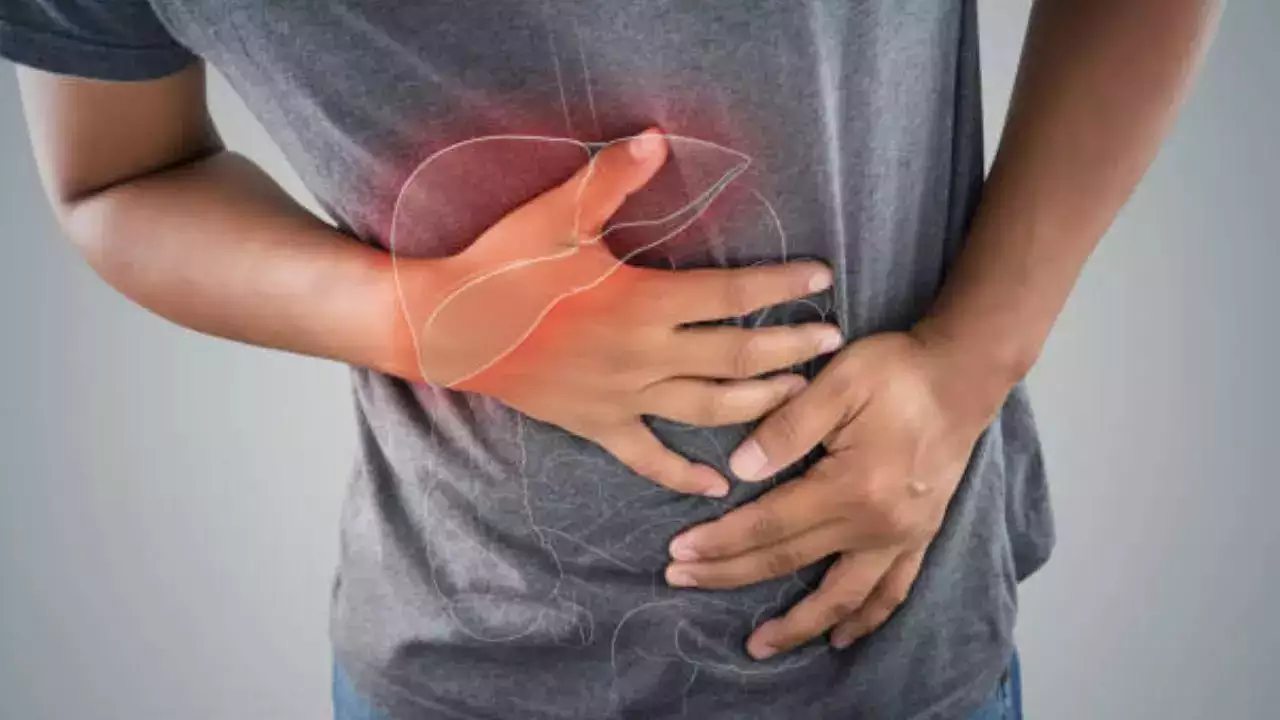
This Common Diet Mistake Could Lead To Liver Cancer—Are You At Risk? (Image Credits: iStock)
Did you know your liver has a built-in defence mechanism that works tirelessly to prevent cancer? Recent research from the University of California San Diego School of Medicine uncovers why this critical safeguard is failing, contributing to the alarming rise in liver cancer cases worldwide.
Liver Cancer
Liver cancer has become the sixth most diagnosed cancer globally and the fourth leading cause of cancer-related deaths. Over the past two decades, cases have surged by 25-30 per cent, alarming experts. Published in Nature, this study sheds light on the connection between unhealthy diets, fatty liver disease, and liver cancer.
The Deadly Link Between Fatty Liver Disease and Cancer
Fatty liver disease, especially its severe form known as metabolic dysfunction-associated steatohepatitis (MASH), is emerging as a major precursor to liver cancer. Often fueled by diets high in sugar and unhealthy fats, MASH has become a global health concern.
Dr Michael Karin, Professor of Pharmacology at UC San Diego, explains, “MASH causes chronic liver inflammation and damage. Over time, this condition can progress into deadly liver cancer or complete liver failure, often necessitating a transplant.”
Shockingly, in the United States alone, 25 per cent of adults suffer from fatty liver disease, with 20 per cent of them progressing to MASH—a ticking time bomb for liver health.
How Cancer Overcomes Your Liver’s Defenses
Our bodies have a natural protective mechanism called cellular senescence, where damaged cells stop dividing to prevent cancer. However, researchers discovered how this defence system backfires in the case of liver cancer.
Studies on mice and human tissues reveal that high-fat, high-sugar diets cause DNA damage in liver cells, pushing them into senescence. While most senescent cells remain dormant, some mutate and fuel tumour growth.
A crucial enzyme, FBP1, plays a central role in this process. Acting as a molecular switch, FBP1 suppresses tumour formation. Alarmingly, most liver cancers suppress this enzyme, enabling precancerous cells to evade senescence and divide uncontrollably.
Your Diet: A Silent Killer
Dr Karin emphasizes the catastrophic impact of poor dietary choices. “A fast-food diet can be as dangerous as smoking over time. These bad diets fundamentally alter cellular functions, even down to the DNA level,” he warns.
Excessive sugar and fat intake not only trigger fatty liver disease but also accelerate DNA damage, increasing the risk of cancer.
New Hope: Treatments on the HorizonThe discovery of FBP1’s role in liver cancer opens doors for innovative treatments, including:
- Nutritional Interventions: Correcting diet-induced imbalances with targeted drugs or supplements.
- Advanced Antioxidants: Developing cutting-edge compounds to counteract DNA damage effectively.
“These therapies could help restore the body’s natural defences against liver cancer,” adds Dr Karin.
Prevention: Your Best Defense
This research underscores the power of prevention:
- Adopt a Healthy Diet: Limit processed foods high in sugar and unhealthy fats.
- Monitor Liver Health: Regular medical checkups can detect fatty liver disease early.
- Embrace a Healthier Lifestyle: Exercise and mindful eating can significantly reduce cancer risks.
As science continues to unveil the intricate links between diet and disease, one message stands clear: your daily choices can either protect or endanger your liver. Take charge of your health today—because your liver’s well-being is vital to your life.
Get Latest News Live on Times Now along with Breaking News and Top Headlines from Health and around the world.
